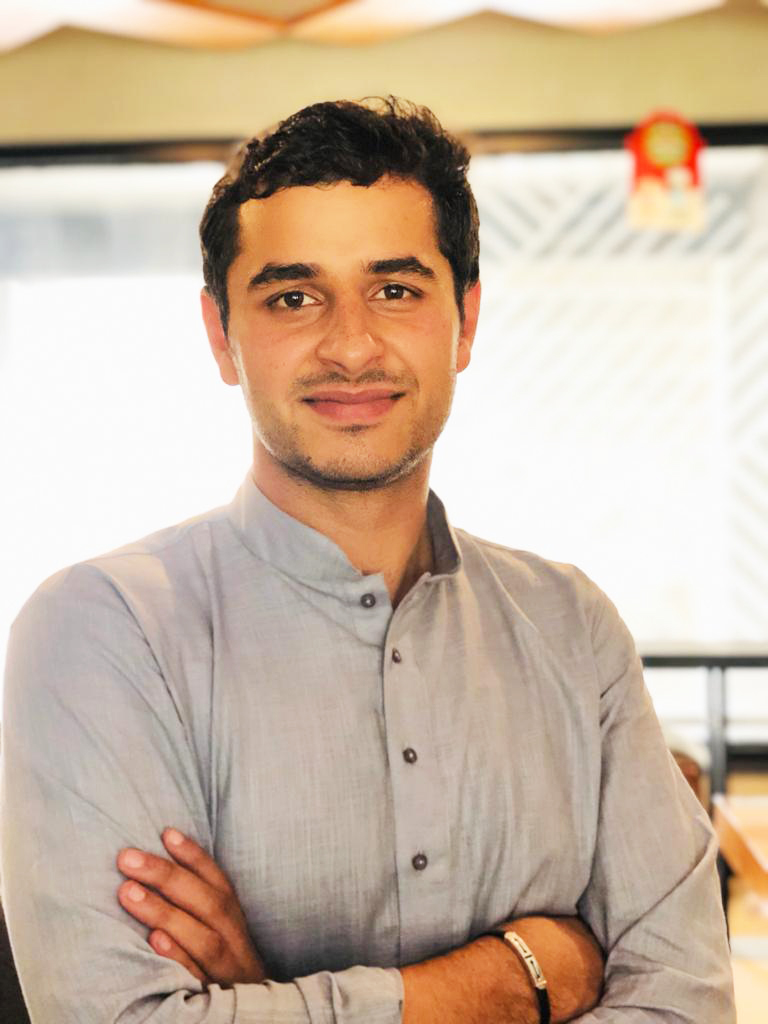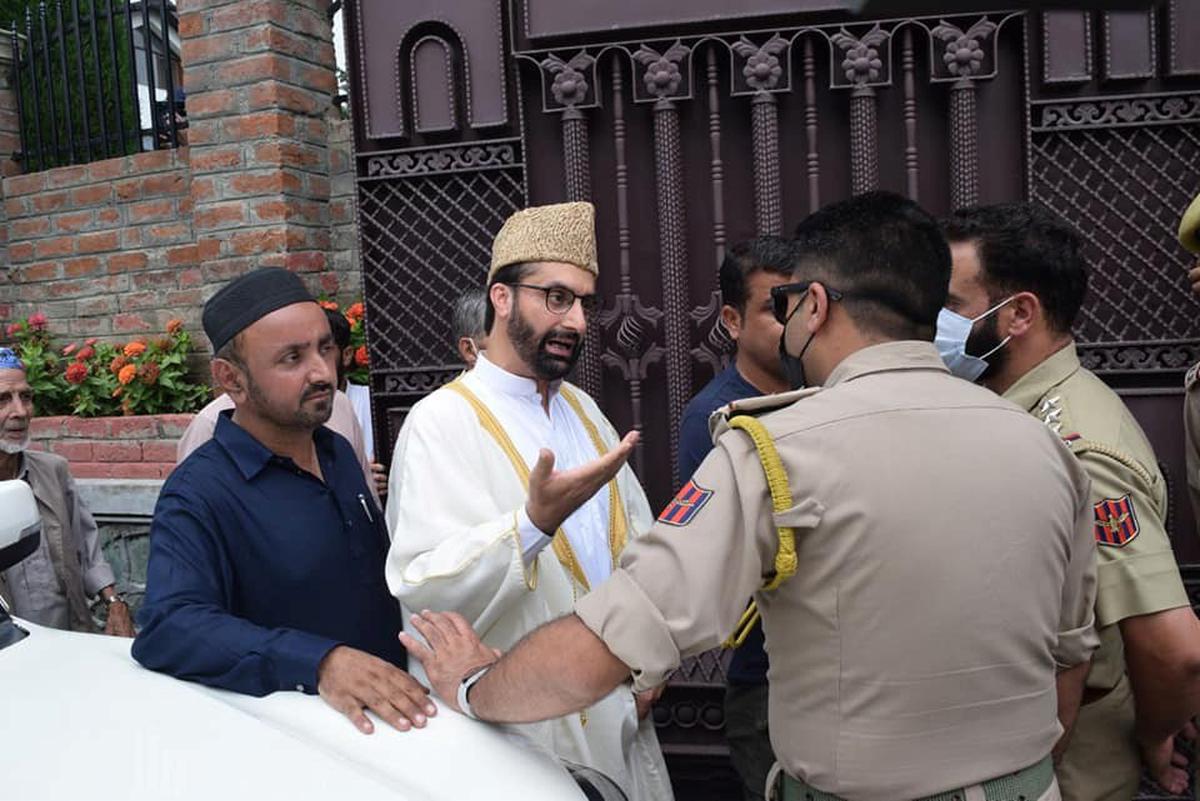Dr. Jahanzaib Sirwal vs BJP: Faith, Freedom & Yogi Adityanath’s Remarks Spark Political Storm
By: Javid Amin | 03 October 2025
A Remark That Shook Political Ground
On September 30, 2025, Jammu & Kashmir BJP leader Dr. Jahanzaib Sirwal issued a powerful statement that has sent ripples across India’s political spectrum. Threatening to resign from the party, he condemned Uttar Pradesh Chief Minister Yogi Adityanath’s remarks against Muslims and denounced the UP police crackdown on Eid-e-Milad-un-Nabi processions where banners reading “I Love Muhammad” were displayed.
For many, this was not just another routine political spat. Sirwal’s intervention represents something deeper—a collision between faith and politics, between India’s constitutional ideals and its present trajectory. His words pierced through party lines, questioning not just the BJP’s strategies but also the soul of Indian democracy itself.
In this feature, we unpack the controversy in detail—its background, constitutional dimensions, political fallout, and the larger lessons it holds for India.
Who is Dr. Jahanzaib Sirwal? A BJP Voice from Kashmir
To understand why Sirwal’s statement matters, one must understand his political profile and standing.
Dr. Sirwal is not just any party functionary. He is a medical professional-turned-politician, known in Jammu & Kashmir for balancing his Muslim identity with loyalty to the Bharatiya Janata Party (BJP)—a party often criticized for sidelining minority concerns.
Within BJP circles, he has been considered a bridge figure—helping the party expand its base among Muslims in J&K while also defending Modi’s inclusive slogans like Sabka Saath, Sabka Vikas, Sabka Vishwas. His presence symbolized BJP’s claim that it is not anti-Muslim but open to “development-first” politics.
That’s why his public rebuke of Yogi Adityanath is not an isolated complaint—it’s a crack in the BJP’s minority outreach project.
The Trigger: “I Love Muhammad” Banners and Police Crackdown
The controversy began during Eid-e-Milad-un-Nabi celebrations in Uttar Pradesh. Across towns, Muslims carried green flags and banners reading “I Love Muhammad”—a symbolic expression of devotion.
Instead of allowing peaceful celebration, UP police—under directives influenced by local Hindutva groups—intervened harshly. FIRs were lodged against Muslim youths, several were detained, and in some towns, processions were stopped midway.
What escalated the tension further were the remarks made by Yogi Adityanath, who reportedly referred to the banners as “provocative,” suggesting that those behind them needed to be “taught lessons for generations.”
For millions of Muslims, this was a direct attack on their faith and freedom of expression. And for Dr. Jahanzaib Sirwal, it was a red line crossed.
Sirwal’s Statement: Faith Before Party
In an emotionally charged press conference in Srinagar, Dr. Sirwal minced no words:
-
He called Yogi Adityanath’s comments “divisive, inflammatory, and unconstitutional.”
-
He warned that if the BJP leadership fails to intervene, he would resign and place his Iman (faith) over party loyalty.
-
He demanded the withdrawal of FIRs, release of detainees, and a public disavowal of such rhetoric.
“Patriotism cannot be policed, faith cannot be criminalized. If standing by my Prophet is a crime, then I refuse to be silent, even if it costs me my position in BJP,” Sirwal declared.
This was a rare moment of defiance—a BJP Muslim leader openly threatening resignation, using religious conviction as the moral anchor.
Constitutional Angle: Article 25 and Religious Freedom
At the heart of Sirwal’s protest lies Article 25 of the Indian Constitution, which guarantees the right to freedom of religion—to practice, profess, and propagate faith.
Sirwal argued that the UP crackdown blatantly violated Article 25. His stance highlights a growing tension: while the Constitution enshrines religious liberty, political majoritarianism often curtails it in practice.
Legal experts point out that displaying “I Love Muhammad” banners during a religious procession falls well within the ambit of constitutional rights. Criminalizing such acts risks setting a dangerous precedent, where faith expressions become subject to political approval.
This constitutional framing gives Sirwal’s protest more weight—it is not just about Muslim sentiments, but about India’s democratic fabric itself.
Community Reactions: Anger, Support, and Polarization
The fallout has been intense:
-
Muslim Groups in UP & J&K: Hailed Sirwal’s courage, saying his words reflected the anger of ordinary Muslims who feel cornered.
-
Student Unions & Civil Liberties Groups: Issued statements of solidarity, calling the crackdown a “hate-driven overreach.”
-
Kashmiri Civil Society: Saw Sirwal’s voice as proof that even BJP insiders feel suffocated by Hindutva politics.
-
Hindutva Outfits: Dismissed Sirwal as “grandstanding,” accusing him of playing victim politics.
Social media hashtags like #FaithBeforePolitics and #SirwalSpeaks trended for days, with polarized debates on whether BJP can continue to claim inclusivity while tolerating such rhetoric.
BJP’s Dilemma: Between Yogi and Modi
The controversy exposes a sharp contradiction within the BJP:
-
Narendra Modi’s Narrative: Emphasizes Sabka Saath, Sabka Vikas, Sabka Vishwas—a carefully crafted message of inclusive development.
-
Yogi Adityanath’s Politics: Often foregrounds aggressive Hindutva, where religious assertion by minorities is seen as provocation.
By confronting Yogi’s remarks, Sirwal indirectly forced the BJP leadership to choose between its two faces—the inclusive “development-first” image, or the exclusionary “Hindutva-first” strategy.
This is not just about one leader’s comments. It’s about whether BJP can hold its diverse factions together while navigating the 2025 political landscape.
Historical Parallels: Faith vs Politics in Indian Democracy
Sirwal’s statement is not without precedent. India’s political history has seen leaders resign or rebel when faith clashed with party lines:
-
Maulana Abul Kalam Azad (Congress) defended minority rights even when sidelined.
-
Syed Shahabuddin (Janata Party, later independent) broke ranks over Muslim representation in Parliament.
-
Shankersinh Vaghela (BJP rebel) walked out over ideological disagreements.
What makes Sirwal unique is that he remains within the BJP, a party perceived as hostile to Muslim voices, and still dares to challenge its power structure.
Media & Social Media Storm
Television debates amplified the controversy, with primetime anchors splitting along ideological lines. Pro-BJP media painted Sirwal as a “troublemaker,” while liberal outlets hailed him as a rare truth-teller inside BJP ranks.
On social media, the debate was fierce:
-
Supporters called him the “conscience of BJP.”
-
Critics branded him a “closet Congressi.”
The sheer virality of his remarks proves that this is more than a local story—it is a national flashpoint.
Sociopolitical Analysis: What This Means for Indian Democracy
Dr. Sirwal’s stance highlights three critical truths:
-
Muslim Disillusionment: Despite Modi’s outreach, many Muslims feel BJP governance marginalizes their identity.
-
Hindutva Dominance: Yogi’s rhetoric reflects the ideological dominance of Hindutva within BJP, often overshadowing Modi’s inclusive slogans.
-
Fragility of Constitutional Ideals: Article 25 and minority rights remain vulnerable to politicized policing and rhetoric.
If ignored, this discontent risks further alienating India’s 200 million Muslims, deepening the communal fault lines ahead of elections.
Regional Fallout: Kashmir, UP, and Beyond
-
In Kashmir: Sirwal’s words resonate with Muslims who feel silenced post-Article 370. His defiance could strengthen BJP’s minority outreach, or backfire if the party sidelines him.
-
In UP: The incident cements Yogi’s image as Hindutva’s enforcer, appealing to his base but alienating Muslims further.
-
Nationally: This clash embodies India’s larger struggle—balancing religious freedom with political majoritarianism.
What Next? Possible Scenarios
The road ahead is uncertain:
-
If BJP Acts: By reining in Yogi or addressing Sirwal’s concerns, it could salvage its “inclusive” image.
-
If Sirwal Resigns: His exit would embarrass BJP, giving Opposition fresh ammunition on minority rights.
-
If Ignored: The controversy may deepen mistrust, with Muslims drifting further from BJP’s fold.
Either way, this is not a storm that can be brushed aside quietly.
Bottom-Line: A Test of India’s Democratic Soul
Dr. Jahanzaib Sirwal’s defiance is more than a party dispute. It is a mirror to India’s democratic contradictions—a reminder that constitutional freedoms must remain sacred, above party lines and communal politics.
By invoking his Iman (faith) against political power, Sirwal has posed a question that BJP—and India at large—cannot escape:
👉 Will India’s politics continue to criminalize faith expressions, or will it uphold the pluralism promised in its Constitution?
The answer will not only decide Sirwal’s future—it may shape the trajectory of Indian democracy itself.



